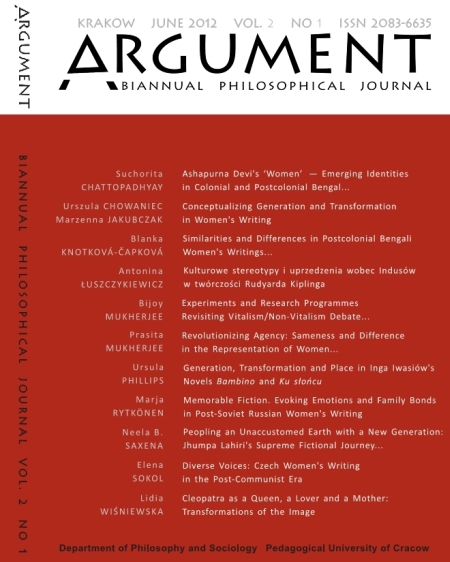Revolutionizing Agency: Sameness and Difference in the Representation of Women by Rokeya Sakhawat Hossain and Mahasweta Devi
Keywords:
agency, colonial studies, Bengali literature, feminism, marginalization, postcolonial studies, subaltern studies, Third World women, powerlessnessAbstract
In this paper the sameness and difference between two distinguished Indian authors, Rokeya Sakhawat Hossain (1880-1932) and Mahasweta Devi (b. 1926), representing two generations almost a century apart, will be under analysis in order to trace the generational transformation in women’s writing in India, especially Bengal. Situated in the colonial and postcolonial frames of history, Hossain and Mahasweta Devi may be contextualized differently. At the same time their subjects are also differently categorized; the former is not particularly concerned with subalterns whereas the latter specifically focuses on the effect of race and class on gender. The quest for the ‘self’ and ‘subjectivity’ is more pertinent in the latter and consequently the appeal for agency is based on a crude power struggle. Hossain, a philanthropist who championed the woman question, believed that striving for equality should be a collective process which could be achieved by spreading awareness among fellow-inmates inhabiting the prison of patriarchy. Like Euro-American first-wave feminists, Rokeya advocated the necessity of education among women in order for them to be able to comprehend their plight and ‘awake’ for the cause. She addresses fundamental issues of feminism like education and the systematized claustrophobia within the domestic space. Whereas Mahasweta Devi, has been an activist writer who is regarded as the brand ambassador for the support of the marginalized, deprived and denotified tribes of India. It is her mission to provide succour to the marginalized sections, especially tribes from the Purulia district of West Bengal, like the Kherias and Shabars. As an activist writer she explores tribal life and allied socio-political issues which reflect their agony.


